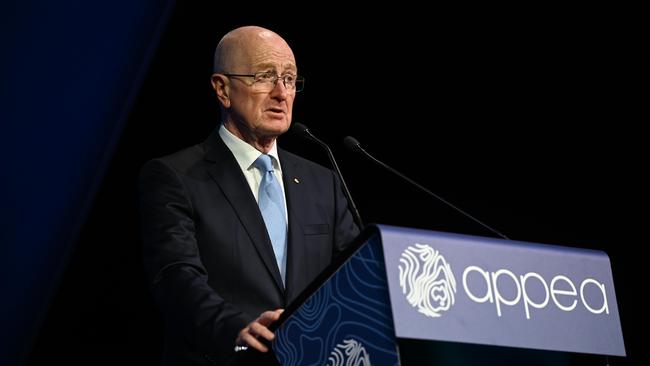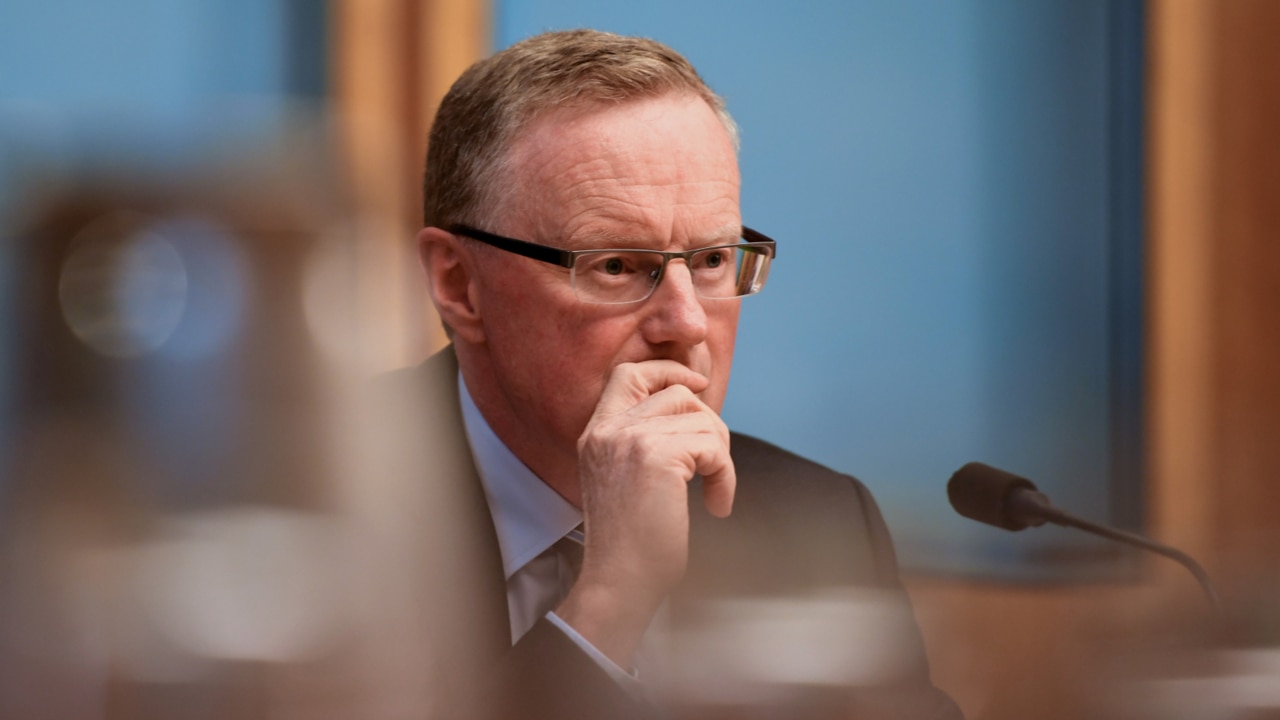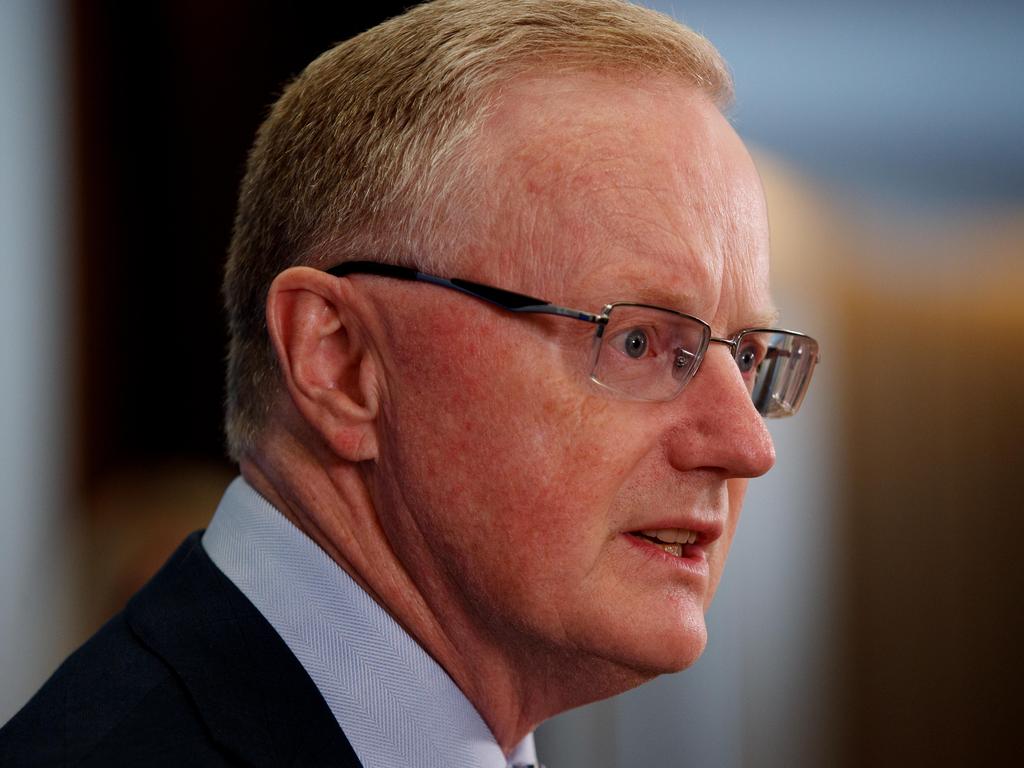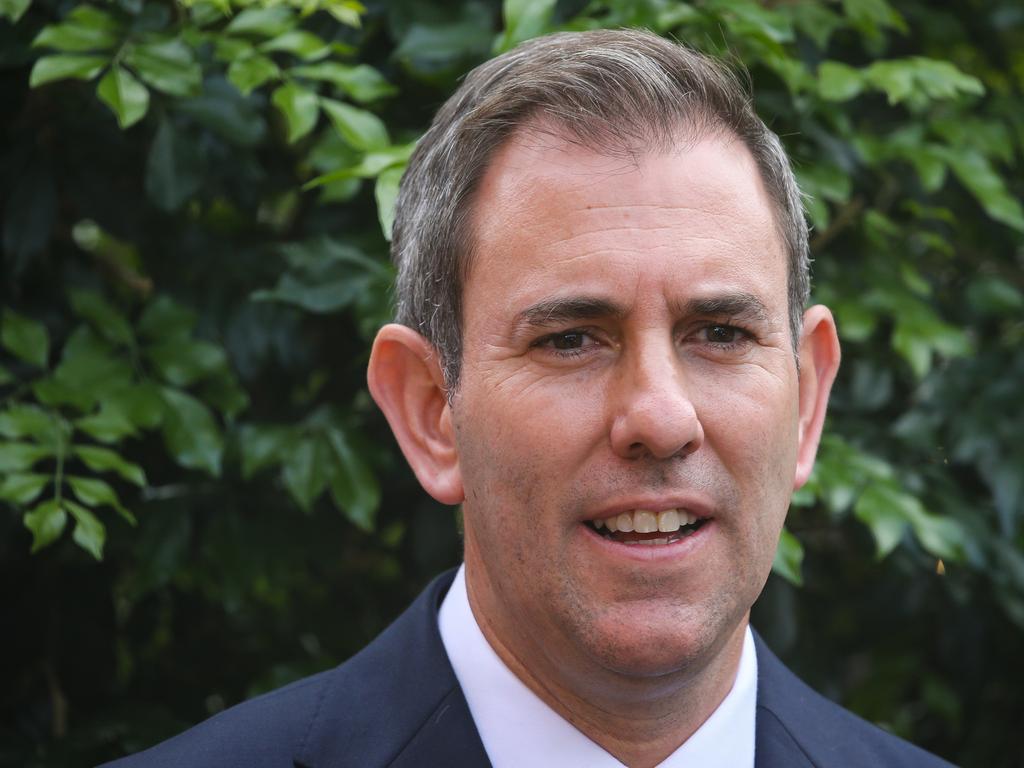Kickstart or be kicked: RBA’s grim warning on productivity
The nation must kickstart productivity or homeowners will be hit with more interest rate hikes, the Reserve Bank has warned.

The nation must kickstart productivity or homeowners will be hit with more interest rate hikes, the Reserve Bank has warned.
The “hawkish” signal in the minutes from the central bank’s May board meeting came as former RBA governor Glenn Stevens told a conference in Adelaide that inflation was “still way too high” and Australians should not expect a return to the “ultra-low” interest rates of the past decade.
The warnings were sounded a week after Jim Chalmers’ second federal budget predicted a swift decline in price growth over the next year, and as consumer confidence tumbled to recessionary levels on the back on the shock rate hike earlier this month.
Dr Stevens said that, with monetary policymakers in a “once-in-a-generation battle to return inflation to … very low and stable levels”, it was not surprising central banks around the world had “signalled a willingness to go higher still”.
“And really, it can’t be otherwise at this stage,” Dr Stevens said.
“I think we’ve also transitioned from a world in which interest rates were low for a long time to one in which they’ll be elevated for some time.”
The RBA on May 2 surprised investors and most economists by lifting its cash rate target by 25 basis points to 3.85 per cent, a decision that helped send consumer confidence plunging to recessionary levels, according to Westpac’s latest monthly survey.
Westpac chief economist Bill Evans said the bank’s sentiment index had almost fallen back to “the dismal levels” in March, which was the lowest monthly reading since the Covid outbreak in 2020 and, before that, since the deep recession of the early 1990s.
“The entrenched pessimism is clearly reflecting intense pressure on household disposable incomes resulting from high inflation and the sharp rise in interest rates,” Mr Evans said.
Nearly seven in 10 households expect more rate hikes to come over the coming year, the survey revealed, a view that was reinforced by what economists called a “hawkish” message from the May board minutes.

NAB head of market economics Tapas Strickland said he did not expect another hike until July, but every meeting now had to be considered “live”. Mr Strickland joined other analysts in saying that Wednesday’s wage price index figures could prove decisive for a June rate hike, if the data showed pay rates climbed faster than the expected 0.9 per cent in the three months to March.
The minutes from the RBA board meeting showed members debated the case for a pause versus a hike and, while it was a “finely balanced” decision, there were “multiple arguments” for an 11th increase in 13 months.
In particular, board members had become increasingly concerned that the nation’s flatlining productivity performance since the depths of the pandemic could make it difficult to bring inflation back under control.
With unions pushing for the Fair Work Commission to approve a 7 per cent increase to the minimum wage in coming weeks, the RBA said its forecast peak in economy-wide wages growth of 4 per cent was consistent with inflation slowly returning from 7 per cent to 3 per cent in two years. But that forecast was “predicated on productivity growth returning to around the modest pace recorded prior to the pandemic”.
“If this did not occur, growth in unit labour costs would be uncomfortably fast,” the minutes read.

They flagged this as “another upside risk to inflation”.
RBA board members said the two-year runway to bring inflation back to 3 per cent “left little room for upside surprises … given that inflation would have been above the target for around four years by that time”.
While the board “noted that inflation had peaked and was showing signs of slowing further”, they discussed other reasons high consumer price growth could prove stickier than expected.
While goods inflation has eased, services inflation could follow the overseas lead and prove more persistent, the minutes noted. What’s more, strong population growth and low rental vacancy rates could lead to rents growing even faster than the central forecast envisaged.
A falling exchange rate and the recent turn in the property market also argued in favour of another rate hike, the minutes said. There was also the ongoing risk of inflation becoming more entrenched in the country’s psychology, which would make it harder to shift.
“In reaching their decision, members acknowledged that there were still significant uncertainties surrounding the economic outlook, particularly for household consumption,” the minutes said.
“But, on balance, given the board’s strong commitment to price stability and the importance of ensuring that inflation expectations remain anchored, members judged that a further increase in interest rates was warranted.”
The minutes reiterated the board’s determination to do what was required to bring inflation back to target, while emphasising that it was still seeking to “traverse the narrow path”. “Members also agreed that further increases in interest rates may still be required, but that this would depend on how the economy and inflation evolve,” they said.
Westpac’s latest survey revealed an 8 per cent drop in the bank’s consumer sentiment index to 79 points following this month’s rate rise, mostly reversing a sharp improvement in the previous month. (A score below 100 indicates more pessimists than optimists.)
Mr Evans said that, while interest rates were again a key driver of the May survey, renters reported a bigger fall in confidence than mortgagors, dropping by 13 per cent compared with the 10 per cent decline in confidence among indebted homeowners.
This result “highlights the extent to which tight rental markets and surging rents are putting intense pressure on a group that makes up around 30 per cent of households,” he said.
Mr Evans said disappointment around Labor’s second budget – which included $14.6bn in cost-of-living relief aimed at vulnerable households, including power bill relief and boosts to rent assistance and the dole – accounted for more than half of the month’s hit to confidence, based on sample responses before and after budget night.
But he said that was probably too “harsh”, and the gap between the 15.5 per cent of respondents who said they expected the budget to improve their finances, versus the 27 per cent who expected to be worse off, was narrower than previous budgets.
Among the most remarkable findings in the survey was an 11 per cent jump in the index tracking house price expectations to 144 points – the highest since February last year and suggesting property market optimists outnumber pessimists four to one.
That was despite 70 per cent of respondents predicting further rate rises over the coming 12 months.







To join the conversation, please log in. Don't have an account? Register
Join the conversation, you are commenting as Logout